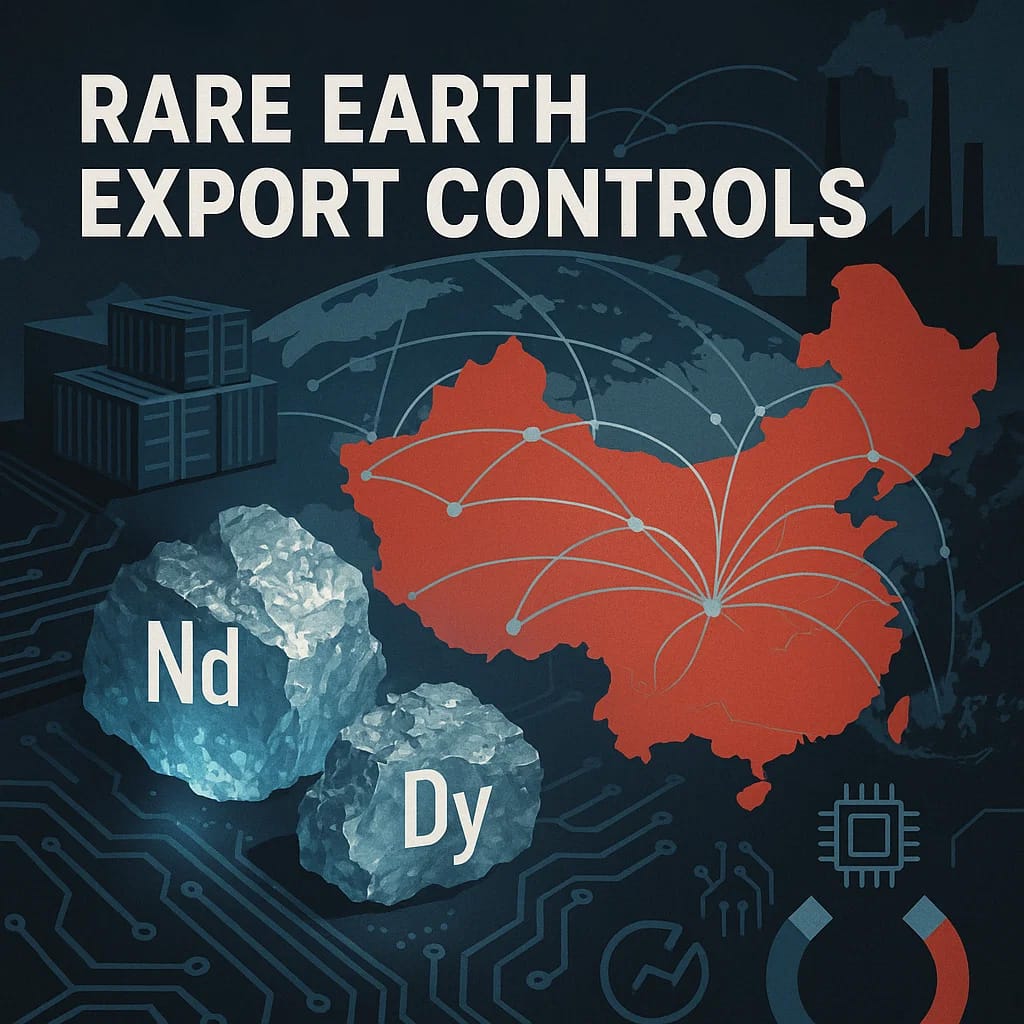China has once again reshaped the global trade landscape. On Thursday, the Ministry of Commerce announced a major tightening of export controls on rare earth materials and related processing technologies, extending restrictions to a wider range of magnet manufacturing methods and foreign collaborations.
Under the new regulation, Chinese companies are prohibited from engaging in rare-earth-related cooperation with overseas firms without official approval, especially in industries linked to defense and semiconductors.

Why Rare Earths Matter
Rare earth elements—such as neodymium, dysprosium, and terbium—are critical for manufacturing high-performance magnets, electric vehicles, wind turbines, smartphones, and advanced weapon systems.
China currently accounts for over 80% of global rare earth refining capacity, making it the undisputed leader in this strategic sector.
This means that any policy shift in China can have immediate ripple effects across global supply chains, especially in high-tech and green energy industries.
The Key Points of the New Restriction
- Broader Technology Ban – The restriction now covers more types of rare earth magnet manufacturing and processing technologies.
- Tighter Export Licensing – Companies must obtain special approval before exporting rare earth products or know-how to overseas defense and semiconductor users.
- No Unauthorized Cooperation – Chinese enterprises are strictly forbidden from participating in rare earth projects or joint ventures abroad without permission.
Global Impact: Supply Chains Under Pressure
The move is likely to cause:
- Supply Chain Disruptions in the semiconductor, EV, and renewable energy sectors.
- Rising Production Costs as manufacturers seek alternative suppliers outside China.
- Strategic Realignments in countries like the U.S., Japan, and South Korea, which rely heavily on Chinese materials for advanced manufacturing.
For example, automakers and wind turbine manufacturers may face delays or cost spikes due to reduced access to rare earth magnets. Meanwhile, logistics companies handling high-value materials will need to navigate stricter export documentation and approval processes.
What It Means for Traders and Freight Forwarders
Exporters and logistics providers should expect:
- Longer clearance times for rare earth-related cargo.
- More scrutiny on end-user declarations and export permits.
- Increased compliance requirements for shipments involving advanced materials.
At Zcyt Logistics, we continue to monitor such regulatory changes closely and provide customized export solutions for technology-related goods. Our compliance team assists clients with:
- Proper documentation for restricted commodities,
- Customs declaration optimization, and
- Secure, compliant transport for high-tech materials.
Final Thoughts
China’s new rare earth export restrictions mark another turning point in the global technology race. While these measures aim to protect national interests and technological sovereignty, they also underline the growing complexity of international trade.
For manufacturers and traders worldwide, agility and compliance will be the keys to staying competitive in this new era of strategic resource control.
